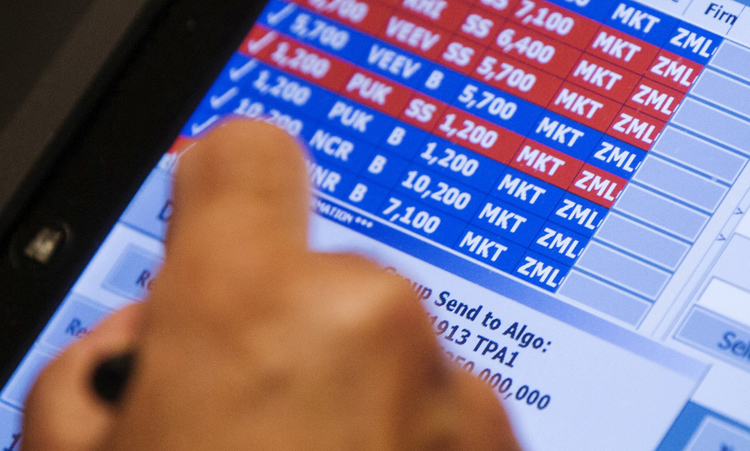NYSE shut down for nearly four hours by technical glitch
"It's not a good day, and I don't feel good for our customers who are having to deal with the fallout," NYSE President Thomas Farley told CNBC during the halt.
NYSE, which traces its roots back to an agreement under a Buttonwood tree on Wall Street in 1792, handled 6.12 percent of US stock volume for the day, with much of that coming after the exchange reopened, according to statistics from BATS Global Markets. That compares to an average of about 13.4 percent last month.
Traders had awaited the reopening anxiously because much of the NYSE's business happens when portfolio managers put in orders designed to occur at the exact market close to ensure end-of-day pricing.
However, many traders said that it did not matter that the NYSE was down. That's because there are 11 US stock exchanges, including those run by Nasdaq OMX Group and BATS, along with more than 40 private stock-trading venues, so the trading of NYSE-listed stocks was uninterrupted.
"This is one of the rare cases where the fragmented markets we live in actually serve a purpose," said Dave Nadig, director of exchange-traded funds at FactSet Research Systems. "If this happened at (the London Stock Exchange), you would just be sitting staring at a blank screen."
GLITCHES GALORE
NYSE had been experiencing technical issues even before the market opened. The exchange had said it was experiencing connectivity problems that may have prevented some of its customers from getting acknowledgements on orders submitted in some 220 stocks.
NYSE's glitch came on the same day that computer problems led United Airlines to ground all its flights for about two hours and the home page of the Wall Street Journal's website temporarily went down.
The US Department of Homeland Security said there were no signs that the problems at NYSE and United Airlines stemmed from "malicious activity." The SEC said on Wednesday that it was closely monitoring the situation at NYSE. The White House said President Barack Obama had been briefed on the matter.
Nearly all US trading is done electronically, and the NYSE outage again raised questions about the robustness of the technology at exchanges after a raft of major glitches in recent years.
A technical problem at NYSE's Arca exchange in March caused some of the most popular exchange-traded funds to be temporarily unavailable for trading. And in August 2013, trading of all Nasdaq-listed stocks was frozen for three hours, leading US Securities and Exchange Commission Chair Mary Jo White to call for a meeting of Wall Street executives to insure "continuous and orderly" functioning of the markets.
The NYSE accounts for more than 60 percent of S&P 500 .SPX volume at the close of the market, according to Credit Suisse analyst Ana Avramovic. Most of this is at the "market-on-close," when those orders are processed for funds and institutions.
"If you don't have all the orders on that marketplace on the close, the pricing on the close would be definitely not accurate," said Empire Executions Inc President Peter Costa, who trades on the NYSE floor.
The benchmark S&P index closed down 1.7 percent on Wednesday, as investors continue to focus on turmoil in China and Greece.






